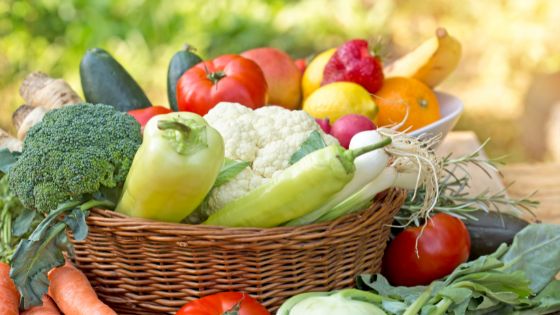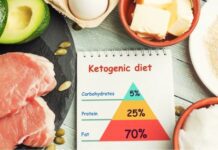Organic food is so important for our health because it contains more nutrients and antioxidants than regular non-organic produce. And it is the healthiest option for people who want to avoid pesticides, hormones, and other harmful substances.
Organic foods are usually not genetically modified which means they don’t contain any of the controversial ingredients found in GMOs (genetically modified organisms). It tastes better because it’s grown without the use of herbicides. Also, Organic farming is a sustainable way to grow food that doesn’t pollute the environment.
Organic For Human Health
People are more conscious of their health and what they eat. The benefits of eating organic are numerous and can be found everywhere on the internet. And is not only healthier for humans, but they are also much healthier for the environment and animals.


The benefits of eating organic are many. For one, it reduces your exposure to pesticides that can cause cancer and other diseases. It also helps you avoid genetically modified organisms (GMOs) which might be harmful to your health in the long run. Eating organic foods also supports sustainable agriculture practices that help to preserve our environment for future generations.
If you are a health-conscious person and also want to contribute to a sustainable environment then you must go for organic food and start with organic lentils or pulses that are nutritious as well as delicious.
Environmental Impact Of Eating Organic
Organic food is not only healthier but also better for the environment. Organic farming is more sustainable than traditional farming. Organic agriculture is based on organic fertilizers, crop rotation, and biological pest control rather than chemical pesticides or herbicides. This limits the use of toxic chemicals that cause pollution in the soil, air, and water.
It also helps to reduce greenhouse gas emissions by avoiding synthetic fertilizers and pesticides that release nitrous oxide into the atmosphere when they break down. Nitrous oxide is a powerful greenhouse gas that contributes to global warming by trapping heat in our atmosphere.
The environmental costs of our consumption habits are becoming apparent in many ways. For example, oceans are becoming increasingly polluted with plastics and other human refuse. This pollution has a huge impact on marine life as well as ocean ecosystems in general.
In order to reduce our environmental footprint, we need to make changes in both how we consume goods as well as how we produce them?
Organic Foods and Sustainable Diets For A Healthy Lifestyle
Organic food is not only a new trend in food but also a lifestyle. The idea of eating organic and sustainable has become a new way of living for many people.
Some organic foods may cost more than non-organic ones because they take longer to grow and need more labour to produce. But there is no denying that organic foods taste better and have the potential to be healthier for you than their non-organic counterparts.
Organic food is a type of food that is made without the use of chemicals, pesticides, antibiotics, or genetically modified organisms. Organic farming methods are used to grow the crops and animals for organic foods.
Sustainable diets are diets that are healthy for both the environment and human health. Some sustainable diets include veganism, vegetarianism, pescetarianism, fruitarianism, and so on.
How Does Organic Farming Protect Human Health?
The world is facing a food crisis, and it’s not just because there’s a lack of food. There are also concerns about the quality and sustainability of the food that we eat.
Organic farming is a way of growing food that relies on natural processes. It does not use any man-made substances that can harm the environment or human health. It is a type of agriculture that does not use any synthetic or artificial inputs and relies on natural fertilizers, such as manure and compost, to provide nutrients to the crops.
Organic farming has many benefits for human health. It reduces the risk of exposure to pesticides, antibiotics, hormones, and other chemicals that are used in conventional agriculture. The environment also benefits from organic farming because it doesn’t contribute to soil erosion and it doesn’t contaminate water sources with chemical runoff.
Organic Farming’s Role in Fighting Climate Change
The effects of global warming have been felt in all aspects of our lives, and agricultural production is not spared. The issue is that the changes in climate are happening at a faster rate than agriculture can adapt to.
The changing climate has a lot of implications for the food we eat, the prices we pay, and the planet’s future.
Organic farming is a type of farming that is done without the use of man-made chemicals, such as pesticides or fertilizers. It is an alternative way of agriculture that focuses on organic inputs such as natural fertilizers, green manures, animal manures, composts, and crop rotation. This type of agriculture also avoids the use of synthetic chemicals in production.
The role of Organic farming in climate change has many. It reduces greenhouse gas emissions by increasing the amount of carbon in the soil, which in turn increases soil fertility. It limits erosion and water pollution because it does not use chemical fertilizers or pesticides. It also helps maintain biodiversity by rotating crops and managing weeds using non-chemical methods.
Organic farming has the potential to fight climate change by sequestering carbon in the soil. Organic farming is also beneficial for the environment and humanity as it produces more nutritious food.






















